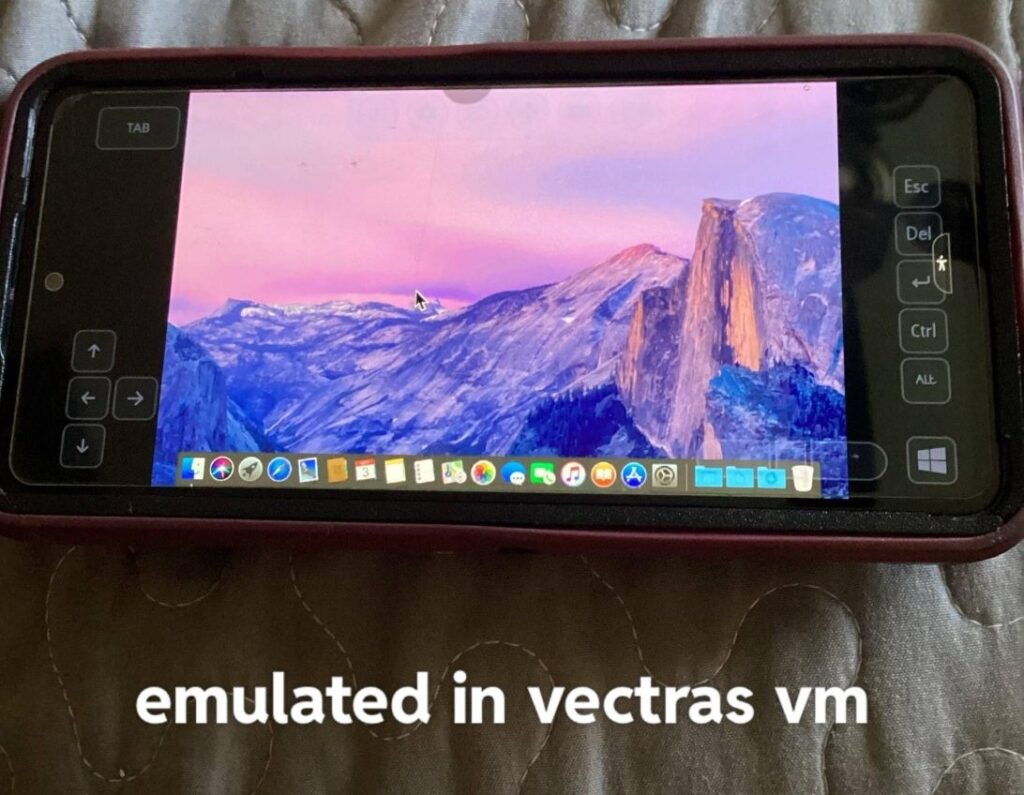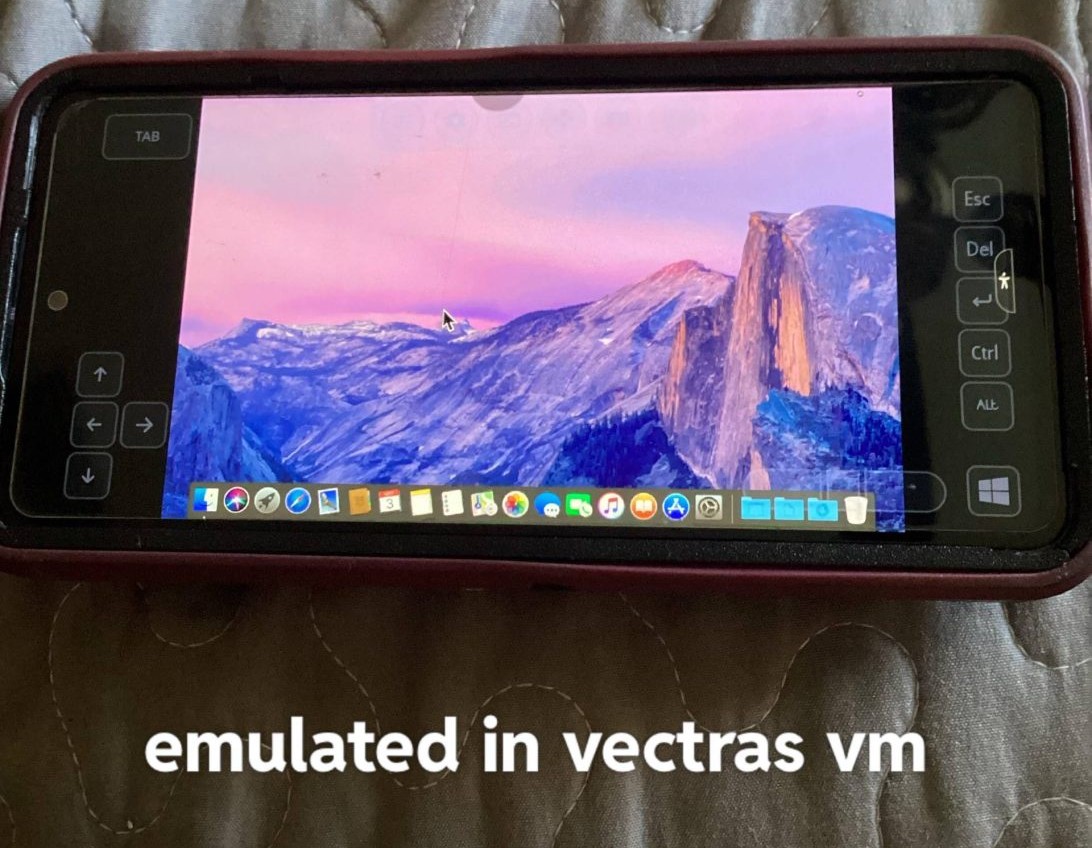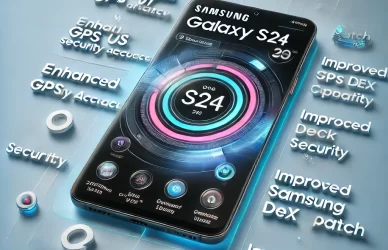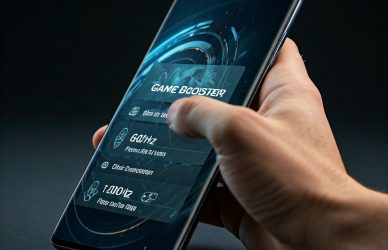Galaxy A-Series Model Boots Up macOS High Sierra Through Emulation: A Groundbreaking Achievement
In an exciting development, a Reddit user has managed to boot up macOS High Sierra on a Samsung Galaxy A-series smartphone using emulation. This achievement not only showcases the potential of emulation technology but also demonstrates the power and versatility of Samsung’s Galaxy A-series, typically seen as a mid-range option in Samsung’s lineup.
Breaking Down the Process: Emulating macOS on Android
Apple designs its operating systems with strict security measures to prevent them from running on non-Apple hardware. Despite these countermeasures, dedicated developers and tech enthusiasts have found ways to bring Apple’s software to unexpected platforms through emulation.
In this case, a Reddit user named ‘Aggressive_Level7574’ successfully ran macOS High Sierra on an unnamed Galaxy A-series device. The accomplishment was shared in a post titled “macOS High Sierra on a Samsung Galaxy (finally works),” suggesting that this was the result of multiple attempts and troubleshooting.

Key Tools: Vectras VM
According to the Redditor’s post, macOS High Sierra was made to run on the Galaxy A-series device using Vectras VM, a virtual machine app that can emulate macOS environments on non-native hardware. Even though High Sierra is now a seven-year-old operating system, getting it to function on an Android device is an impressive milestone, highlighting the flexibility of Android architecture and the growing capabilities of mobile hardware.
Limitations: No Samsung DeX Support on Galaxy A-Series
One limitation of this setup is that Samsung DeX, Samsung’s platform for desktop-style multitasking, isn’t supported on the Galaxy A-series. Without DeX, macOS High Sierra cannot be projected onto an external monitor, meaning that users are confined to the smartphone’s display for running the emulated macOS environment.
Samsung’s flagship Galaxy S and Note series, however, do offer DeX support, which means a premium model like the Galaxy S24 Ultra could potentially emulate macOS and display it on a larger screen via DeX. This setup could open doors for even more practical use of macOS emulation on Samsung devices, especially as more tech enthusiasts experiment with this approach.
The Performance Question: How Well Does macOS Run on a Galaxy A-Series Device?
While the Redditor successfully booted macOS, they didn’t provide any information about the OS’s performance on the Galaxy A device. The experience likely varies based on the specific Galaxy A model used. Galaxy A-series devices are equipped with mid-range processors and typically come with 3-4 GB of RAM, so it’s possible that the performance of macOS on this setup may be limited. However, even with potential lag and slower processing, the fact that macOS was booted up at all on this device is a significant accomplishment.
What This Means for the Future of Cross-Platform Emulation
The successful emulation of macOS on a Galaxy A-series device raises exciting questions about the future of cross-platform compatibility and mobile computing.
Expanding Android’s Versatility
Android’s open-source nature and ARM-based architecture are demonstrated powerfully in this case. The Galaxy A-series device, a non-premium smartphone, was able to emulate a full macOS environment. This accomplishment hints at a future where Android devices could support a broader range of applications and operating systems, further pushing the boundaries of mobile computing.
New Possibilities for Software Development
Running macOS on an Android device could benefit developers, who may use emulation to test applications for Apple’s ecosystem without requiring Apple hardware. If further refined, this emulation approach could open up opportunities for developers who want to experiment with iOS or macOS development but lack access to Apple’s pricier devices.
Learning and Experimentation
This success story also highlights the value of experimentation and learning within the tech community. Emulating different operating systems is an excellent way for enthusiasts and students to deepen their understanding of system architecture and cross-platform compatibility. This kind of hands-on experience is invaluable in an increasingly tech-driven world.
The Next Step: Could Samsung’s Flagship Devices Make macOS Emulation More Practical?
The next frontier for this kind of emulation may lie with Samsung’s premium devices, like the Galaxy S24 Ultra. With DeX support and enhanced hardware specifications, flagship models could provide a smoother, more practical experience of macOS emulation on Android. This setup could potentially allow users to project macOS onto a larger screen, which would be especially beneficial for multitasking and productivity.
Conclusion
While emulating macOS High Sierra on a Galaxy A-series smartphone may be more of a technical feat than a practical solution, it showcases the potential of emulation and the capabilities of modern mobile hardware. As more people experiment with these kinds of cross-platform applications, we could see more use cases that further blur the lines between mobile and desktop environments.
This achievement is a testament to the ingenuity of the tech community and hints at a future where device boundaries become increasingly flexible, allowing us to use various operating systems on one versatile piece of hardware.
FAQs
Q: Can you run macOS on any Android device?
A: While theoretically possible, the performance varies greatly depending on the device’s hardware. Higher-end Android devices will typically run emulations more smoothly.
Q: Is emulating macOS on Android legal?
A: Apple’s EULA prohibits macOS from running on non-Apple hardware, so emulating macOS on an Android device may be legally ambiguous.
Q: Will Samsung’s flagship models handle macOS emulation better?
A: Yes, devices like the Galaxy S24 Ultra with Samsung DeX support could offer a more powerful and user-friendly experience for macOS emulation, especially when paired with an external monitor.
Emulating macOS on Android may still be experimental, but it’s achievements like these that inspire the tech community to keep pushing boundaries. Who knows? Today’s emulation project could pave the way for tomorrow’s tech innovations.




